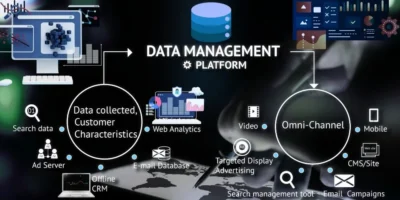With a strong commitment to innovation, Microsoft has established itself as a global leader in software development, cloud computing, hardware manufacturing, and other technology-related services. This article comprehensively analyzes Microsoft, focusing on its evolution, key products, market position, and prospects.
Evolution and Milestones
Microsoft Corporation, founded in 1975 by Bill Gates and Paul Allen, is a multinational technology company that significantly shapes the digital landscape. Their journey began with the development of the Altair BASIC interpreter, which laid the foundation for their partnership with IBM to create the MS-DOS operating system—this pivotal moment marked the company’s entry into the personal computer industry.
Subsequently, Microsoft revolutionized the market by introducing Windows, a graphical user interface that simplified computing for the masses. Throughout its history, it has expanded its portfolio through strategic acquisitions. Notable acquisitions include Skype, LinkedIn, and GitHub, which have bolstered its presence in communication, professional networking, and software development. Moreover, Microsoft’s entry into the hardware market with the Xbox gaming console and the Surface line of devices showcased its diversification strategy and commitment to innovation.
Key Products and Services
Microsoft offers various products and services, including operating systems, productivity software, cloud services, and gaming platforms. Some of their products and services are given below.
Windows
Its flagship operating system, Windows, has evolved and remains one of the most widespread. The release of Windows 10 marked a significant milestone, focusing on a unified user experience across multiple devices.
Office Suite
Microsoft Office has become synonymous with productivity tools. Products such as MS Word, Excel, PowerPoint, and Outlook have become indispensable for businesses, educators, and individuals. The shift towards cloud-based Office 365 has facilitated seamless collaboration and file accessibility across devices.
Azure
Their cloud computing platform, Azure, has emerged as a major competitor to Amazon Web Services (AWS). Azure provides a comprehensive range of services, including infrastructure as a service (IaaS), platform as a service (PaaS), and software as a service (SaaS), enabling organizations to develop, deploy, and manage applications on a global scale.
Xbox
The Xbox gaming console has propelled Microsoft into the gaming industry, garnering a dedicated fan base and competing fiercely with Sony’s PlayStation. The Xbox Game Pass subscription service has further strengthened its position by offering a vast library of games accessible across multiple devices.
Market Position and Competitors
Its market capitalization has soared, making it one of the most valuable companies globally. With a focus on enterprise solutions and cloud computing, Microsoft competes with major players such as Amazon, Google, and Apple. Windows dominates the PC segment in the operating system market, while its mobile operating system, Windows Phone, struggled to gain significant traction against Android and iOS. However, the company adapted its strategy and shifted its focus to providing software and services across platforms, ensuring its relevance in the mobile era.
Azure has emerged as a leader in the cloud computing market, challenging Amazon’s AWS dominance. Its extensive suite of services, global data center infrastructure, and strong integration with other Microsoft products give it a competitive edge. Their success in the gaming industry is evident through the popularity of the Xbox console, competing fiercely with Sony’s PlayStation and Nintendo’s offerings. Additionally, the acquisition of ZeniMax Media, the parent company of Bethesda Softworks, has further solidified its presence in the gaming market.
Future Prospects
Microsoft’s commitment to innovation and adaptability to changing technology trends bode well for its prospects. The company invests heavily in artificial intelligence (AI), quantum computing, and augmented reality (AR) technologies. With the ongoing transition to remote work and digital transformation, Microsoft’s cloud services, collaboration tools, and productivity solutions are poised to thrive.
Azure is expected to maintain its upward trajectory as cloud adoption accelerates across industries. Moreover, They focus on sustainability and carbon neutrality, showcasing their dedication to environmental responsibility. The company aims to be carbon negative by 2030 and has committed substantial resources to achieve this goal.
Conclusion
Microsoft is a technology giant that has revolutionized how we use computers and software and continues leading the industry with innovative products and solutions. Their rich history, diverse product portfolio, and market leadership position them as key players in the technology industry. Through continuous innovation, strategic acquisitions, and a customer-centric approach, Microsoft is well-positioned to shape the future of technology and empower the digital age.















